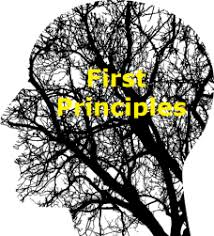commercialism and mindfulness

We are living in a time when mindfulness has become a buzz word and occupies a prominent position in the media. Is this good or bad…or maybe it doesn’t matter? Mindfulness’ popularity springs from it’s roots with Buddhism although I am of the school of seeing mindfulness everywhere, in every spiritual tradition and in every walk of life. Perhaps because of views like mine, mindfulness has entered the realm of pop culture and consequently there could be some misinformation being passed along. I’ve seen it everywhere…people calling themselves mindfulness practitioners or teachers when in fact they haven’t really digested the basics of the practice let alone how to convey what they do know to others. I don’t really have an issue with that because you have to start somewhere and unless you are just jumping on the fad wagon things will sort themselves out eventually. Perhaps where it is most noticeable is in the marketing/commercialization of it. I’ve seen mindfulness work it’s magic in many situations and know firsthand that it’s like water in that it will find it’s path and eventually work it’s way through everything. I find it to be most effective when the non striving attitude is employed. It’s ok to have goals but I think the best way to achieve the goals is by working from “the top down”. In other words just do the practice and let the intelligence of the mind/body take it from there. There are many however that apply mindfulness to every disorder or desired outcome you can think of and “sell” it as the answer to each situation. I’m all for capitalism but I think in many cases this attitude goes too far and results in disappointment for those who have sought “the answer” for their particular issue or goal and didn’t get it. It could be argued that whatever gets them practicing is good. Sometimes I agree with that and sometimes I don’t. My rule of thumb is to be completely honest and open while explaining the nature of learning mindfulness. I’ve never had anyone tell me it is easy, nor was it easy for me. That’s a good starting point. There’s lots more from there.
This next example, while not really an example of commercialism, is an interesting instance of mindfulness’ qualities being put to a different use than usual…Recently someone told me they were alarmed at hearing that mindfulness was being used in the military to hone the skills of our “killing machines”. I suppose there are elements of mindfulness, particularly the ability to focus, that allows soldiers to do their job more efficiently. There is also the ability to let things go and move on, that would be a good skill for a soldier. In fact, there are lots of qualities that we find in mindfulness that would help in military training. Here’s where the nuances kick in. Yes, there are useful skills that can be applied to military situations, but the heart of mindfulness is compassion and kindness and it’s difficult to employ that when you’re killing other people. I suppose an argument could be made for it but I’m not so sure that it would hold water very long.
Here’s a summary from the book Zen at War: (Mindfulness is a big part of Zen training so this is a recent example of how a valuable skill set can be abused if it isn’t balanced with the heart.) “A compelling history of the contradictory, often militaristic, role of Zen Buddhism, this book meticulously documents the close and previously unknown support of a supposedly peaceful religion for Japanese militarism throughout World War II. Drawing on the writings and speeches of leading Zen masters and scholars, Brian Victoria shows that Zen served as a powerful foundation for the fanatical and suicidal spirit displayed by the imperial Japanese military. At the same time, the author recounts the dramatic and tragic stories of the handful of Buddhist organizations and individuals that dared to oppose Japan’s march to war. He follows this history up through recent apologies by several Zen sects for their support of the war and the way support for militarism was transformed into ‘corporate Zen’ in postwar Japan. The second edition includes a substantive new chapter on the roots of Zen militarism and an epilogue that explores the potentially volatile mix of religion and war. With the increasing interest in Buddhism in the West, this book is as timely as it is certain to be controversial.”
All in all I tend to go with the long view that like water, mindfulness will find it’s way and ultimately be a very useful path to improving lives.
commercialism and mindfulness Read More »









